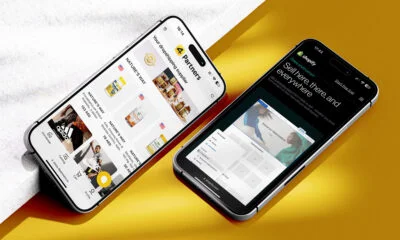News
Saudi Telecom Company Partners With Cubic Telecom To Deliver In-Car Services

Saudi Telecom Company (STC), the largest mobile network operator in Saudi Arabia, has recently announced a partnership with Irish company Cubic Telecom, a leading enabler of automotive connectivity. Together, the two companies will develop in-car services for Saudi drivers, making the country’s vision of a connected future a step closer to reality.
“Partnering with Cubic enables STC as a digital enabler to simplify the delivery and management of advanced in-car services and gives us a foundation for innovating and meeting the changing needs of customers as new services evolve,” commented Dr. Sultan bin Saeed, VP of Business Development at STC.
The suite of tools provided by Cubic, called Connected Car, includes a solution that makes it possible for drivers to remotely monitor and control their vehicles via a smartphone app. It also includes an emergency calling system capable of automatically notifying emergency services in the event of a car crash.
Currently, Cubic’s in-car connectivity solution can be found in more than five million vehicles across 100 countries. The solution is embedded into vehicles at the manufacturing stage, and it gives car manufacturers the ability to collect data on cars’ performance and issue remote software updates.
“Cubic’s connected software is driving performance for carmakers and providing in-car services in key markets. We are delighted to be working with STC to help car manufacturers activate new opportunities in a very significant market,” said Barry Napier, CEO of Cubic Telecom.
Also Read: Instagram Music Is Finally Available In The Middle East
Saudi Arabia has been making significant investments to improve its telecommunications infrastructure and prepare it for the era of the Internet of Things, enabled by 5G connectivity.
In the future, connected cars are expected to be part of a larger ecosystem consisting, among other things, of smart road infrastructure, such as intelligent traffic lights that are aware of real-time traffic conditions and are able to communicate with self-driving vehicles to help them safely reach their destinations.
News
Qatar Airways Debuts World’s First Boeing 777 Starlink Flight
The airline has ambitious plans to roll out the high-speed, low-latency service across its entire Boeing 777 fleet within a year.

Qatar Airways has taken a significant step ahead of the competition by being the first operator to offer Starlink internet on a Boeing 777 aircraft traveling from Doha to London.
As the largest and first airline in the MENA region to offer Starlink’s ultra-high-speed, low-latency internet, Qatar Airways continues to raise the bar for in-flight services after winning the coveted Skytrax “World’s Best Airline” for 2024 award.
Initially, the carrier planned to outfit three Boeing 777 aircraft with Starlink technology. However, by the end of 2024, the airline will have upgraded 12 Boeing 777-300s with this service. Further ahead, the entire Boeing 777 fleet is set to be Starlink-equipped by 2025, one year earlier than originally scheduled, with the Airbus A350 fleet following suit by mid-2025.
This rollout demonstrates Qatar Airways’ dedication to enhancing in-flight connectivity and will enable passengers to stay in touch with family and friends, stream media, watch live sports, work remotely, and even play online games — all at 35,000 feet.
Qatar Airways Group Chief Executive Officer, Engr. Badr Mohammed Al-Meer expressed excitement about the debut flight, stating: “We are thrilled to launch our first Starlink-equipped flight, proving once again why Qatar Airways is at the forefront of the aviation industry”.
Also Read: A Guide To Digital Payment Methods In The Middle East
He continued, “Paired with our commitment to rapidly rollout Starlink across our entire modern fleet, [Qatar Airways] demonstrates our relentless pursuit of offering passengers an in-flight experience that transcends the constraints of traditional air travel”.
By launching its first Starlink-equipped aircraft, Qatar Airways has achieved several milestones, including operating the world’s first Boeing 777 widebody with the service onboard. Qatar Airways’ strategic partnership with SpaceX ensures passengers will continue to enjoy an unmatched in-flight experience, and not only represents a breakthrough for Qatar Airways but also sets a new standard for in-flight connectivity globally.




























